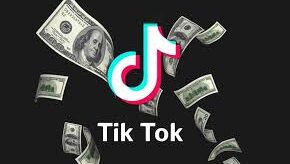In 2025, starting an online business doesn’t mean building a startup with 10 employees and VC funding. You can build a 1-person business that makes real money, operates globally, and runs on systems, automation, and smart tools — not long hours.
Whether you’re a creator, freelancer, coach, or digital product seller, this article will give you a blueprint to launch and grow a lean, profitable, and automated online business that lets you work with freedom — not burnout.
1. What Is a 1-Person Business (and Why Start One)?
A 1-person business is exactly what it sounds like — a solo-run business powered by:
-
Digital products or services
-
Automations
-
AI tools
-
Outsourcing (only when needed)
It’s the modern entrepreneur’s dream:
-
Low overhead
-
High scalability
-
Full ownership
-
Location freedom
-
No meetings, no office, no fluff
You stay lean. You stay in control.
2. Pick Your Business Model (Start Here)
The key is choosing a model that aligns with your skills and can run with low maintenance.
🔹 Top 1-Person Online Business Models in 2025:
-
Digital products (ebooks, templates, courses)
-
Freelance services (writing, design, coding)
-
Coaching/consulting (1-on-1 or group)
-
Memberships or communities
-
Affiliate marketing or UGC creation
-
Content monetization (YouTube, Substack, TikTok)
✅ Tip: Combine 2 models (like coaching + digital products) for recurring + passive income.
3. Build a Minimum Viable Offer (Your First Money-Maker)
Don’t spend months building a fancy brand. Start with a simple offer that solves a real problem.
Examples:
-
A Notion template for remote teams
-
A 7-day fitness coaching package
-
A freelance service like website audits
-
A 1-hour strategy call + checklist bundle
Keep it specific, fast to deliver, and easy to understand.
✅ Tools to Help:
-
Use ChatGPT to craft your offer
-
Design it in Canva or Notion
-
Deliver via Gumroad, Payhip, or email
4. Build a Simple Online Presence (Not a Full Website)
You do not need a full website to start. Just a landing page and maybe a scheduling or payment link.
Start with:
-
A Carrd.co or Notion site
-
Linktree, Popsy, or Bio.fm for quick bio links
-
Calendly or TidyCal to book services or calls
Add:
-
What you do
-
Who it’s for
-
A clear CTA: “Book a call,” “Buy now,” or “Download”
✅ Pro Tip: Use AI headshot tools (like PFPMaker) and Canva to give your solo brand a professional polish.
5. Create a Lean Content System (Without Burnout)
You need content to get seen. But that doesn’t mean posting 5x a day. Create a system that works with your time and energy.
Content Strategy for Solopreneurs:
-
1 long-form piece/week (blog, YouTube video, newsletter)
-
3-5 short-form posts/week (Instagram, TikTok, Twitter)
-
Repurpose everything — 1 video = 5 posts
✅ Use tools like:
-
ChatGPT – draft content ideas
-
Pictory or CapCut – edit short videos
-
Hypefury or Metricool – auto-schedule across platforms
The key is value + consistency, not volume.
6. Set Up Systems That Work While You Sleep
Here’s where your solo business starts feeling automated.
Automate:
-
Lead capture with forms or freebies
-
Emails with ConvertKit, MailerLite, or Beehiiv
-
Payments with Stripe, Gumroad, Lemon Squeezy
-
Product delivery with auto-downloads
-
Bookings with Calendly + Zapier
✅ Bonus: Set up Zapier to connect everything (ex: when someone buys → they get an email → you get a Slack ping).
7. Start Small, Scale Smart
You don’t need to scale with employees. Instead, scale with:
-
Better systems
-
More automation
-
High-leverage offers (like group coaching or templates)
Outsource only when needed:
-
Fiverr or Upwork for tasks like design, editing, or admin
-
AI tools for repetitive tasks (AI email replies, social posts, video editing)
✅ Pro Tip: Productize your services (turn them into packages) to serve more people without more hours.
8. Focus on Recurring + Passive Revenue
To make your business run itself, stack income layers:
-
Recurring: Memberships, retainers, coaching packages
-
Passive: Digital products, affiliate links, courses
-
Content-based: Monetized YouTube, Substack, TikTok
Even as a solo founder, these models compound over time and create income without trading time for money.
9. Keep It Lean, Focused & Fun
As your business grows:
-
Say no to things that add complexity
-
Stay focused on your top 1–2 offers
-
Keep your systems updated
-
Celebrate the freedom you built!
✅ Reminder: You don’t need a big team or 100k followers. You need a valuable offer, an audience that trusts you, and systems that deliver.
Final Thoughts: You Don’t Need More Staff — You Need Smart Systems
The 1-person business model is real, profitable, and scalable in 2025 — and it’s only getting easier with AI, automation, and creator tools.
So if you want:
-
Full creative control
-
Flexible schedule
-
Scalable income
-
Peace of mind
…then a 1-person online business might just be your dream lifestyle.
Start today, launch small, and keep improving. You’re not just building a business — you’re building freedom.

